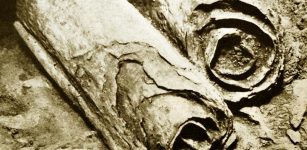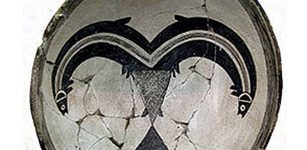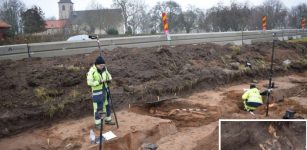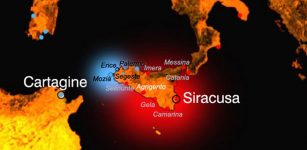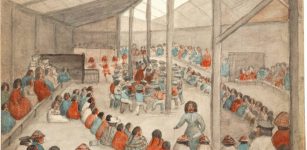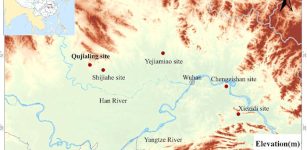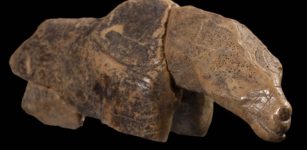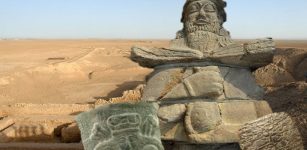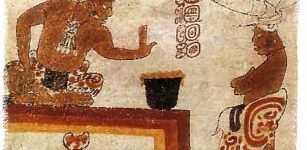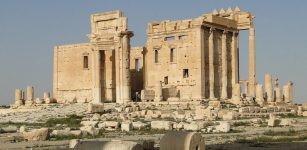Large 4th Century Mosaic Floor Unearthed In İncesu, Kayseri Province, Turkey
Conny Waters - AncientPages.com - Archaeologists have unearthed the largest floor mosaic in İncesu district, Örenşehir District, Köy İçi locality, in the Cappadocia region.
Archaeological excavations in İncesu district, Örenşehir District, Köy İçi locality, under the supervision of Kayseri Museum Directorate with the support of the Metropolitan Municipality, have completed their work this season.
Image source
The results of this digging’s season, which will continue next year - are impressive.
Metropolitan Mayor Dr. Memduh Büyükkılıç, in his statement to journalists at the excavation site, said that the archaeologists carried out studies in six different places throughout the city.
“Experts about the mosaics here say that it is a really high-level residential structure. We will bring a value to Kayseri, which starts with 300 square meters, will increase to 600 square meters, and will spread to 4.5 thousand square meters, the boundaries of which we have drawn in this area,” he explained.
“We have come to the end of the season; now we will cover them, put them to sleep, and believe that we will work even more efficiently next season.
"Roman and early Byzantine periods were mentioned, high-quality mosaic structures were mentioned, we emphasized once again that Anatolia was the cradle of civilization."
Mayor Büyükkılıç also added: “We are also in the Cappadocia region. We are within the borders of İncesu, which is described as the entrance gate of Cappadocia. "We continue our work with the understanding that we will enrich the region with the restoration work on the historical texture in İncesu and create a destination for different civilizations," he said.
Image source
“When we first looked, we see that the mosaic floors, which were 300 square meters in the first period, have reached up to 600 square meters in the recent period,” Şükrü Dursun, Kayseri’s provincial director of culture and tourism, emphasized.
The fact that the floor mosaics are of very high quality and quality suggests that this place was used as a very important villa in its period.
“On one side, a Latin inscription was seen in the place shown as the main reception hall, and Greek inscriptions were also unearthed. There are mostly mosaics with geometric ornaments. We see traces of different civilizations in every corner of Kayseri, the city of civilizations. When we look at Kültepe, we reach 7 thousand years of history. İncesu reflects the traces of a different civilization in an area where we are currently located, the mosaics here are of very high quality. "We have come to an end in our work this year," he said.
Another important information comes from Nevşehir Hacı Bektaş Veli University (NEVU) Department of Art History Lecturer Dr. Can Erpek, who is the scientific advisor of these important excavations.
"We are talking about a high-end residence spread over a very large area, we are talking about a residence with 33 spaces, we have not reached the boundaries of this residence,," Dr. Erpek said in a press release.

"We anticipate that the current residence will expand even more with our excavation works that will continue next year. When we think of Cappadocia and the Central Anatolia Region, which has very valuable floor mosaics, we do not see floor mosaics on such a large residential floor.
"We know that there were a lot of imperial properties in the Cappadocia region during the Roman and Byzantine periods. We come across the name Hyacinthus in the inscriptions, we think that it is one of the rulers and administrators of the region, we examine the sources.
As we get the data, we may have also found the residence of the administrator in charge of an important high-level imperial estate in the region, such a residence has not been reached until now. Our excavation work will continue next year."
The research, ongoing for three years now, has been carried out by the Nevşehir Hacı Bektaş Veli University, with the backing of the Kayseri Metropolitan Municipality.
Original story - Kayseri Metropolitan Municipality
Written by Conny Waters - AncientPages.com Staff Writer





